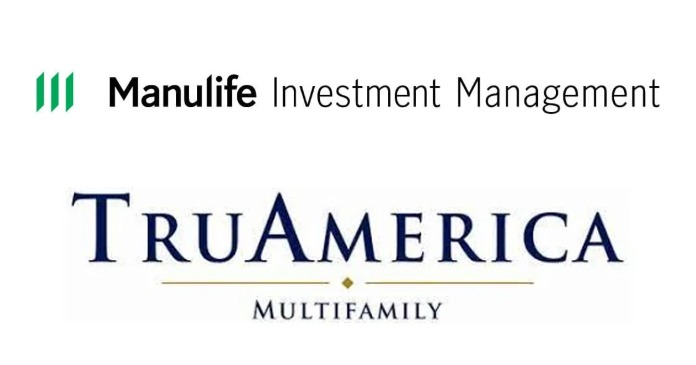So you might think we were there to lament the softening local business environment and its associated housing market. Yet, the executives in attendance continue to hold cautious optimism by way of educated managerial control and risk exposure.
They confirm that the fundamentals of the apartment industry are sound and this interesting insight, direct from the Rust Belt, reinforces bullish market opportunities that are presently in play. Why the optimism? Volatile financial and real estate markets are being successfully navigated by companies providing product differentiation, qualified management placement and strategic business acumen.
Each month, industry publications are full of interviews with high profile executives delivering in spades to corporate shareholders due to unique value propositions and leadership styles. As an avid follower of management training and business ideologies, I wondered who might be on my own dream team of management superstars. Here’s the vision:
The line up
My fantasy executive leadership team is chosen for their incredible insight, associate recognition and historic results. Executives like Kin Oldham, as president of the central region for Pinnacle, an American Management Services Company; Chris Finetto, vice president vendor services at Riverstone Residential and Robert Koch, principal of Fugleberg Koch Architects, Inc. continue to deliver on industry knowledge with embedded career success.
A. David Lynd, COO of The Lynd Companies and Mark Fogelman, COO at Fogelman Management Company, interestingly enough, are heirs to successful real estate empires founded by their fathers, but both strive for personal recognition though impressive individual results.
Jamie Sue Gorski, the VP of marketing for Kettler Management is our marketing leader delivering advertising results and corporate branding experience from major urban markets such as Chicago, New York and Los Angeles. Our financial guru is Doug Seline, the CFO at Concord Management, known for impressive economic management returns and business standards in the South East market place.
Michael F. van Breda Ph.D., director of the graduate certificate finance program at Southern Methodist University, Cox School of Business provides commentary on our plan and placement choices. His 25 years academic experience provides interesting insight on the current state of our real estate market.
Playbook strategy
For our playbook, we confer with the executive development book Execution, by Larry Bossidy and Ram Charan, and BOOM! 7 Choices for Blowing the Doors off Business-as-Usual, by Kevin and Jackie Freiberg.
Both strategies can be distributed though the business silos (operational, marketing and financial centers) of our fantasy management corporation.
Let’s kick off with a play book review of core management practices from Execution, “The discipline of getting things done.” Bossidy and Charan insist that execution and organizational follow through must be our key concern, which unfortunately, a majority of organizations fail to achieve.
The authors focus on seven essential behaviors of organizational leaders: knowledge, realism, clear goals, follow through, employee rewards, coaching, and practicing authenticity. We good to go: Our management team already displays these characteristics within their personas and current operational organizations.
Bossidy explains, “Execution as the job of the leader, is exercising, not delegating, the development of people and leaders forging a strategic direction and conducting operations.”
Overseeing or managing a multifamily organization at the executive level requires skills encompassing both internal and external influences. Each member of our fantasy management team holds an uncanny knack of excelling in big picture placement, both corporate and industry wide.
Game time
Chris Finetto is a realist, experienced in management operations and asset development. He gleans historical perspective from his previous stint with Credit Retriever, an industry resident screening vendor.
When asked about his position at Riverstone Residential and the value proposition to his organization, he responded “There are few organizations that have dedicated vendor management representation at this level, and my expertise on both sides of the equation allows me to make amicable product vs. cost decisions for all parties.” It must work as he has delivered an economic return to his company.
Virtually any meeting with Chris turns into a pragmatic review of “who’s who” and “which company is succeeding at what” throughout the industry, vendor and management member alike. “I am able to cut through the marketing fillers and get to the bottom line when negotiating with our vendors, allowing us to select and install best of breed industry provider solutions, while exposing opportunistic choices for Riverstone Residential.”
Executive leadership requires high-level management ability to ensure the organization is in sync with its employee development. Kin Oldham is QB of this skillset within his position at Pinnacle, an American Management Services Company, and the second largest fee management company in the U.S.
Taking the company’s helm as central region president, Kin’s portfolio responsibility increased by nearly 40,000 units, along with 17 new states. Kin and his team made a mark for itself under its previous banner, Greystar Management. His authenticity, employee development and management style is magnanimous. Seeking Kin’s own explanation for his success, he replied “Well, I never really thought of it as management style per se, it is really about the whole picture, empowering people that I work with and giving them the latitude to utilize their strengths.”
His team shares his enthusiasm. His best play: “It is my responsibility to enable them to achieve their goals. As a leader, I empower my team by broadening the scope for their capacity to perform, and the resulting returns are beneficial to the enterprise and the person themselves.”
While Oldham and Finetto are leaders in the top strata of our industry, our next two executives guide large, privately-held regional organizations with particular vision. The Lynd Company and Fogelman Management Company share similarities in that both were founded nearly 40 years ago by the prior generation, and today both are managed by sons in the COO position.
David Lynd, a technological master of applied practice, and Mark Fogelman, a leader in humanistic staffing leadership. After graduating from Southern Methodist University, David became chief operating officer for his company. He is a fast charging, efficiency-seeking, executive determined to drive business value with IT tools and automated systems. “At the Lynd Company, we believe that in today’s market place investors want to know their money is placed in the hands of intelligent operators.”
Like the authenticated vendor purchasing skills seen in Finetto’s position, Lynd uses his industry experience and insightful management knowledge to create solid returns for contract asset holders and equity fund managers alike. “We use technology in key areas to breakdown busy work and place meaningful information in the hands of decision makers who can use it.”
Taking a somewhat different path on his strategy, Mark Fogelman focuses on creating economic returns for his clients through HR management and a personal talent for employee motivation and administration. Employee reward and coaching take center stage with Fogelman and his direct reports.
“Our front line associates are truly our most important asset, but our 45-year track record is based on our ability to hire, support, train and inspire every level of our organization,” says Fogelman.
Where other company leaders are expected to deliver business efficiencies though cost cutting practices, he chooses to emphasize employee tenure and practical business experience at his company. “In this day and time, with all of the financial turbulence and economic uncertainty, we are so proud to offer our 550 associates a career in stable and supportive work environment. We value the personal lives of each of our team members. By incorporating family values into a private, multi-generational family business, we have created great value for each of our key customer group: our clients, our residents and our associates.” These two highly competitive companies operate under different value statements when it comes to guiding an enterprise though turbulent times, but they will be around for the next generation of family members.
These executives are instrumental in both the internal controls of their organizations, but they also offer the benefit of their innate knowledge of their companies.
Business development procedures for fee management organizations are critical as contracts are typically on a 30-day notice of termination.
“At Pinnacle, our unique proposition to our asset owner is to illustrate that the benefits are mutual, and we are truly their partners,” says Oldham. Engaging management contracts are often as important as building construction revenues.
When it comes to architectural development, Robert (Bob) Koch, principal, of Fugleberg Koch Architects, Inc, is known for his design influence, product innovations, and educational contribution within our industry.
For more than forty years, Koch led with unique ideologies and cutting edge concepts for high density residential housing solutions. “We are constantly exploring the technology evolution, design innovations, construction methods, and land use patterns to widen the range of product potential. The result: a consistent flow of products that integrate design, development, construction and operating inventions into new and more effective responses in an ever changing market.”
Committed to industry education, he continues to be a popular speaker for conferences and panels. “For the past three years I was the architectural track manager at Multi-Housing World. With each lesson shared, many in turn are returned as attendees express the opinions and lessons they encountered.”
Creating an exceptional apartment community takes a skilled team, but each multifamily community requires an equally successful marketing campaign to bring it to life, while delivering qualified traffic and leasing expectations. Jamie Gorski, chief marketing officer of Kettler, is the most passionate marketing executive I have encountered in 20 years of multifamily.
Gorski hit the national radar in 1998 as director of marketing for Charles E. Smith, with her amazing campaign for Reston Landing, a residential community in Northern Virginia, which was recognized with a Pillars of the Industry Award by The National Association of Homebuilders (NAHB). Gorski continued to win a national a Pillars of the Industry Award every year since.
Today, she continues her magic at Kettler, and is responsible for elevating the company’s brand in the Washington, D.C. market. She leads Kettler’s innovative corporate branding, unique advertising campaigns and highly effective public relations tactics.
When asked for an explanation of her incomparable results, she elaborated “much like retail sales, you need to evolve your marketing efforts to match the needs of today’s consumers and business goals. We live in a 24/7 world and response times need to be the same.”
Gorski developed numerous national brand partnerships including Apple, Morton’s, Tiffany’s, Williams Sonoma Inc. and her long-term relationship with American Express. Adding, “These programs provide terrific co-op marketing opportunities, while elevating our own brand affiliation to iconic national and international entities.”
For effective results in operations, marketing, and finance, vision mixed with industry knowledge is required. Consistent attention to client value, while creating economic stability within a portfolio, will return the ultimate performance.
Doug Selin, CFO of Concord Management Company, provides a noted financial shrewdness to his assets. When asked about his thoughts on asset returns at Concord, he replied “From an operations perspective, depending on the occupancy of the community as well as the overall economic climate, there are certain things that can be done to create or protect the financial value of the asset. Budget control is just one direction.”
With regard to the current malaise in the multifamily market place, he stated “As evidenced by the country’s financial history, markets are cyclical. Prudent practices, as well as a patient mindset, will allow companies to weather the storm. Simply put, the strong will survive, period.”
Creating market opportunity for his own investor base, David Lynd recently spoke of his company’s equity fund as “opportunistic capital looking for areas where we can apply our operating platform to create returns.”
Ironically, though the Resolution Trust Corporation was being created in the eighties as a shelter for depreciating assets, time proved that wealth was generated at the hands of then-real estate opportunists.
“Today, those same market fundamentals remain active and executives such as these will gain the lion’s share of rewards,” states Michael F. van Breda Ph.D, breaking away from meetings with oil and gas executives from five countries.
He refers to these market moving opportunities as “door-openers,” keys that will unlock future wealth opportunities. “A management team with these types of credentials provides sustainable superior returns to its financial partners and shareholders. Historically, our country’s economics support an optimistic view of the future based on our fundamental strengths.”
These professionals regularly present their intrinsic and idealistic management style, and many others will surface across the nation, especially within today’s cities where irrational market exuberance turned into unrealistic market apathy.
Hut one. Hut two.
Our fantasy management team is complete. Yet, we must engage subordinating players to deploy and support our great advancements.
The book BOOM! delivers seven simple steps to engage our employees from the bottom up, including how to be a player, being accountable, service over self interest, focus forward, play, results over rhetoric and applied risk.
This employee play book is written in light hearted, easy to read, motivational summaries any organization can focus around to jettison forward management goals and plans.
“Your fantasy management team will only be successful if it has a leader strong enough to manage the individuals you have recruited.
That leadership is critical all the time, but in weak economic times such as now, it carries the utmost importance.” adds Doug Selin.
Take a few moments and reflect on your current team, your play makers, and who’s on the bench. What game plan will you roll out for the balance of this year to make a difference in your 2009 season?
















